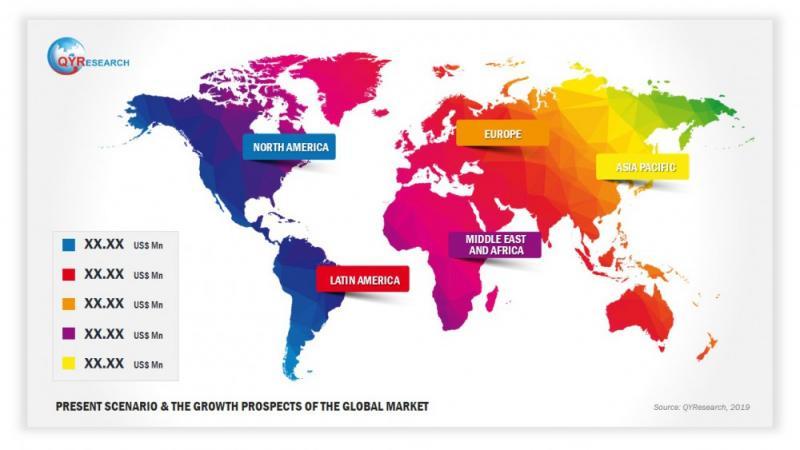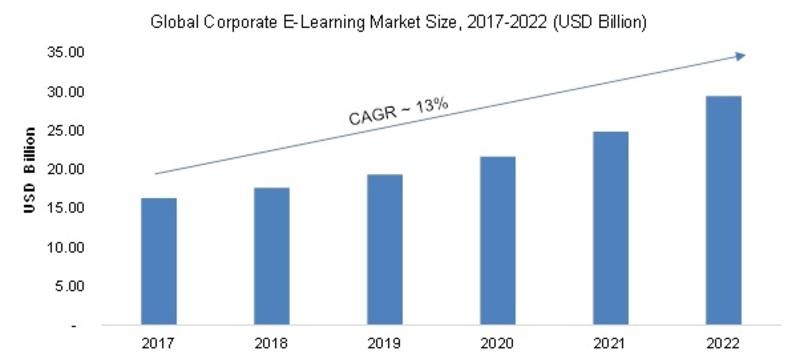Press release
The Evolving Hydrogen Pipeline Market: Size, Share Analysis, and Trend Predictions
The Hydrogen Pipeline Market was valued USD 9.1 Billion in 2023 and projected to reach USD 25.4 Billion by 2030, growing at a CAGR of 15.8% during the forecast period of 2023-2030. As the global transition towards sustainable energy intensifies, hydrogen emerges as a promising solution for decarbonizing various sectors, including transportation, industry, and power generation. The development of hydrogen pipeline infrastructure plays a pivotal role in facilitating the widespread adoption of hydrogen as a clean energy carrier. In this overview of the hydrogen pipeline market, we explore key insights, trends, and recent industry developments driving its growth.
Download a Free sample copy of Report:https://www.marketdigits.com/request/sample/3823
Major vendors in the global Hydrogen Pipeline Market are CENERGY HOLDINGS., SoluForce B.V., Jindal Saw Limited, ArcelorMittal, GF Piping Systems., NPROXX, H2 Clipper, Inc, Europe Technologies, Pipelife International GmbH, Hexagon Purus, Tenaris, Gruppo Sarplast S.r.l, Salzgitter AG and Others.
Key Insights:
Rising Demand for Clean Energy: Growing concerns about climate change and air pollution drive the shift towards clean energy alternatives. Hydrogen, with its potential to produce energy through combustion or fuel cells without emitting greenhouse gases, gains traction as a viable solution for reducing carbon emissions.
Hydrogen Pipeline Infrastructure: Hydrogen pipelines serve as the backbone of hydrogen distribution networks, enabling the transport of hydrogen from production facilities to end-users across long distances. These pipelines require specialized materials and infrastructure to handle the unique properties of hydrogen, including high pressure and potential embrittlement of materials.
Integration with Renewable Energy: Green hydrogen production, using renewable energy sources such as wind and solar power, holds promise for achieving carbon neutrality. Hydrogen pipelines facilitate the transportation of green hydrogen from remote production sites to areas of demand, supporting the integration of renewable energy into existing energy systems.
Hydrogen as an Energy Carrier: Hydrogen pipelines enable the transportation of hydrogen in its gaseous or liquid form, offering flexibility in storage and distribution. As a versatile energy carrier, hydrogen can be used in various applications, including fuel cell vehicles, industrial processes, and power generation, driving the demand for hydrogen pipeline infrastructure.
Read More:https://www.marketdigits.com/hydrogen-pipeline-market-1705393450
Major Segmentations Are Distributed as follows:
By Piping System
Underground piping systems
Above-ground piping systems
Others
By Hydrogen Form
Gas
Liquid
By Material
Metallic Materials
Carbon Steels
Micro alloyed Steels
Carbon-Molybdenum
Nickel Alloys
Copper and Cobalt Alloys
Other
Non Metallic Materials
Plastics
Elastomers
Fiber Reinforced Polymer
Other
Recent Developments
In November 2023, Partnering on a hydrogen pipeline from Germany and Italy to North Africa. To contribute to long-term energy security and change, Germany and Italy have decided to move ahead with the construction of a hydrogen pipeline from North Africa to southern Germany.
Key Trends:
Expansion of Hydrogen Infrastructure: Governments and industry stakeholders worldwide are investing in the development of hydrogen infrastructure, including pipelines, storage facilities, and refueling stations. Strategic infrastructure investments aim to support the scaling up of hydrogen production and consumption, fostering the growth of the hydrogen economy.
Hydrogen Corridor Development: Initiatives to establish hydrogen corridors, connecting key production hubs with demand centers, gain momentum. These corridors facilitate the efficient transportation of hydrogen across regions, enabling the deployment of hydrogen-based technologies and promoting regional economic development.
Technological Innovations: Advances in pipeline materials, design, and monitoring technologies enhance the safety, efficiency, and reliability of hydrogen transportation. Innovative solutions address challenges such as hydrogen embrittlement, leakage detection, and pipeline integrity management, driving the adoption of hydrogen pipeline infrastructure.
Public-Private Partnerships: Collaboration between governments, industry players, and research institutions accelerates the deployment of hydrogen infrastructure projects. Public-private partnerships leverage expertise, resources, and funding to overcome technical, regulatory, and financial barriers, promoting the widespread adoption of hydrogen as a clean energy solution.
Recent Industry Developments:
Government Support and Funding: Governments worldwide announce ambitious hydrogen strategies and allocate funding to support the development of hydrogen infrastructure, including pipelines. Public funding initiatives aim to stimulate private sector investment, drive innovation, and create a conducive regulatory framework for hydrogen deployment.
Infrastructure Projects and Investments: Major energy companies and infrastructure developers announce plans to invest in hydrogen pipeline projects, spanning across regions and sectors. These projects aim to connect hydrogen production sites with industrial clusters, transportation hubs, and urban centers, laying the foundation for a hydrogen-based energy system.
Regulatory Framework Development: Regulatory authorities develop standards, guidelines, and permitting processes specific to hydrogen pipeline infrastructure to ensure safety, environmental protection, and interoperability. Regulatory clarity and consistency facilitate project development and investment decision-making in the hydrogen sector.
International Collaboration: Global initiatives and partnerships promote international cooperation in advancing hydrogen infrastructure deployment and standardization. Collaborative efforts focus on sharing best practices, harmonizing regulations, and addressing cross-border challenges to facilitate the global expansion of the hydrogen economy.
Get this report at a discount:https://www.marketdigits.com/request/discount/3823
In conclusion, the hydrogen pipeline market is poised for significant growth as countries accelerate their transition towards a low-carbon economy. With increasing investments, technological innovations, and supportive policies, hydrogen infrastructure plays a crucial role in unlocking the full potential of hydrogen as a clean, sustainable energy source, driving economic growth and environmental stewardship on a global scale.
Contact Us:
1248 CarMia Way Richmond,
VA 23235, United States.
Phone: +1 510-730-3200
Email: sales@marketdigits.com
Website: https://www.marketdigits.com
About MarketDigits:
MarketDigits is one of the leading business research and consulting companies that helps clients to tap new and emerging opportunities and revenue areas, thereby assisting them in operational and strategic decision-making. We at MarketDigits believe that a market is a small place and an interface between the supplier and the consumer, thus our focus remains mainly on business research that includes the entire value chain and not only the markets.
We offer services that are most relevant and beneficial to the users, which help businesses to sustain themselves in this competitive market. Our detailed and in-depth analysis of the markets catering to strategic, tactical, and operational data analysis & reporting needs of various industries utilize advanced technology so that our clients get better insights into the markets and identify lucrative opportunities and areas of incremental revenues.
Download a Free sample copy of Report:https://www.marketdigits.com/request/sample/3823
Major vendors in the global Hydrogen Pipeline Market are CENERGY HOLDINGS., SoluForce B.V., Jindal Saw Limited, ArcelorMittal, GF Piping Systems., NPROXX, H2 Clipper, Inc, Europe Technologies, Pipelife International GmbH, Hexagon Purus, Tenaris, Gruppo Sarplast S.r.l, Salzgitter AG and Others.
Key Insights:
Rising Demand for Clean Energy: Growing concerns about climate change and air pollution drive the shift towards clean energy alternatives. Hydrogen, with its potential to produce energy through combustion or fuel cells without emitting greenhouse gases, gains traction as a viable solution for reducing carbon emissions.
Hydrogen Pipeline Infrastructure: Hydrogen pipelines serve as the backbone of hydrogen distribution networks, enabling the transport of hydrogen from production facilities to end-users across long distances. These pipelines require specialized materials and infrastructure to handle the unique properties of hydrogen, including high pressure and potential embrittlement of materials.
Integration with Renewable Energy: Green hydrogen production, using renewable energy sources such as wind and solar power, holds promise for achieving carbon neutrality. Hydrogen pipelines facilitate the transportation of green hydrogen from remote production sites to areas of demand, supporting the integration of renewable energy into existing energy systems.
Hydrogen as an Energy Carrier: Hydrogen pipelines enable the transportation of hydrogen in its gaseous or liquid form, offering flexibility in storage and distribution. As a versatile energy carrier, hydrogen can be used in various applications, including fuel cell vehicles, industrial processes, and power generation, driving the demand for hydrogen pipeline infrastructure.
Read More:https://www.marketdigits.com/hydrogen-pipeline-market-1705393450
Major Segmentations Are Distributed as follows:
By Piping System
Underground piping systems
Above-ground piping systems
Others
By Hydrogen Form
Gas
Liquid
By Material
Metallic Materials
Carbon Steels
Micro alloyed Steels
Carbon-Molybdenum
Nickel Alloys
Copper and Cobalt Alloys
Other
Non Metallic Materials
Plastics
Elastomers
Fiber Reinforced Polymer
Other
Recent Developments
In November 2023, Partnering on a hydrogen pipeline from Germany and Italy to North Africa. To contribute to long-term energy security and change, Germany and Italy have decided to move ahead with the construction of a hydrogen pipeline from North Africa to southern Germany.
Key Trends:
Expansion of Hydrogen Infrastructure: Governments and industry stakeholders worldwide are investing in the development of hydrogen infrastructure, including pipelines, storage facilities, and refueling stations. Strategic infrastructure investments aim to support the scaling up of hydrogen production and consumption, fostering the growth of the hydrogen economy.
Hydrogen Corridor Development: Initiatives to establish hydrogen corridors, connecting key production hubs with demand centers, gain momentum. These corridors facilitate the efficient transportation of hydrogen across regions, enabling the deployment of hydrogen-based technologies and promoting regional economic development.
Technological Innovations: Advances in pipeline materials, design, and monitoring technologies enhance the safety, efficiency, and reliability of hydrogen transportation. Innovative solutions address challenges such as hydrogen embrittlement, leakage detection, and pipeline integrity management, driving the adoption of hydrogen pipeline infrastructure.
Public-Private Partnerships: Collaboration between governments, industry players, and research institutions accelerates the deployment of hydrogen infrastructure projects. Public-private partnerships leverage expertise, resources, and funding to overcome technical, regulatory, and financial barriers, promoting the widespread adoption of hydrogen as a clean energy solution.
Recent Industry Developments:
Government Support and Funding: Governments worldwide announce ambitious hydrogen strategies and allocate funding to support the development of hydrogen infrastructure, including pipelines. Public funding initiatives aim to stimulate private sector investment, drive innovation, and create a conducive regulatory framework for hydrogen deployment.
Infrastructure Projects and Investments: Major energy companies and infrastructure developers announce plans to invest in hydrogen pipeline projects, spanning across regions and sectors. These projects aim to connect hydrogen production sites with industrial clusters, transportation hubs, and urban centers, laying the foundation for a hydrogen-based energy system.
Regulatory Framework Development: Regulatory authorities develop standards, guidelines, and permitting processes specific to hydrogen pipeline infrastructure to ensure safety, environmental protection, and interoperability. Regulatory clarity and consistency facilitate project development and investment decision-making in the hydrogen sector.
International Collaboration: Global initiatives and partnerships promote international cooperation in advancing hydrogen infrastructure deployment and standardization. Collaborative efforts focus on sharing best practices, harmonizing regulations, and addressing cross-border challenges to facilitate the global expansion of the hydrogen economy.
Get this report at a discount:https://www.marketdigits.com/request/discount/3823
In conclusion, the hydrogen pipeline market is poised for significant growth as countries accelerate their transition towards a low-carbon economy. With increasing investments, technological innovations, and supportive policies, hydrogen infrastructure plays a crucial role in unlocking the full potential of hydrogen as a clean, sustainable energy source, driving economic growth and environmental stewardship on a global scale.
Contact Us:
1248 CarMia Way Richmond,
VA 23235, United States.
Phone: +1 510-730-3200
Email: sales@marketdigits.com
Website: https://www.marketdigits.com
About MarketDigits:
MarketDigits is one of the leading business research and consulting companies that helps clients to tap new and emerging opportunities and revenue areas, thereby assisting them in operational and strategic decision-making. We at MarketDigits believe that a market is a small place and an interface between the supplier and the consumer, thus our focus remains mainly on business research that includes the entire value chain and not only the markets.
We offer services that are most relevant and beneficial to the users, which help businesses to sustain themselves in this competitive market. Our detailed and in-depth analysis of the markets catering to strategic, tactical, and operational data analysis & reporting needs of various industries utilize advanced technology so that our clients get better insights into the markets and identify lucrative opportunities and areas of incremental revenues.
Permanent link to this press release:
Copy
Please set a link in the press area of your homepage
to this press release on woodPRI. woodPRI disclaims liability for any content contained in
this release.
Recommend

/newsMicroencapsulation Market Deep Analysis on Key Players - Dow Corning, Encapsys, Syngenta Crop Protection, Evonik Industries, 3M and Bayer
Market Study Report Adds Global Microencapsulation Market Size, Status and Forecast 2024 added to its database. The report provides key statistics on the current state of the industry and other analytical data to understand the market.
Extensive research is required for choosing the appropriate cor...

/newsGermany Airbag Market Size 2023: Global Share, Industry And Report Analysis By 2030 | Hyundai Mobis Co., Ltd. Key Safety Systems, Inc. Robert Bosch GmbH
Germany airbag market is expected to grow at a CAGR of around 6% during the forecast period. Germany Airbag Market research report refers to gathering and analyzing significant market data serve as best medium for various industry players to launch novel product or service. It is vital for key firms...

/newsSecurities Brokerages And Stock Exchanges Market Outlook 2021: Big Things are Happening
A new intelligence report released by HTF MI with title "Global Securities Brokerages And Stock Exchanges Market Survey & Outlook" is designed covering micro level of analysis by Insurers and key business segments, offerings and sales channels. The Global Securities Brokerages And Stock Exchange...

/newsRenewable Chemicals Market Emerging Trends and Competitive Landscape Forecast to 2028
The renewable chemicals market was valued at US$ 80,566.30 million in 2021 and is projected to reach US$ 1,76,750.76 million by 2028 it is expected to grow at a CAGR of 11.9% from 2021 to 2028. The research report focuses on the current market trends, opportunities, future potential of the market, a...

/newsHow Coronavirus is Impacting Cold Brew Coffee, Global Market Volume Analysis, Size, Share and Key Trends 2020-2026
"Market Latest Research Report 2020:
Los Angles United States, February 2020: The Cold Brew Coffee market has been garnering remarkable momentum in the recent years. The steadily escalating demand due to improving purchasing power is projected to bode well for the global market. QY Research's lates...

/newsCorporate E-Learning Market - Global Industry Size, Share, Key Players Analysis that are Infor, SkillSoft Corporation, Adrenna, CERTPOINT Systems and others with Regional Forecast to 2022
Overview:
E-Learning is used to enhance the learning procedures for newer job requirements and to make employees sound about the internal and external changes in the market and respective organizations. This method has created considerable differences in the ways of training and developing employee...